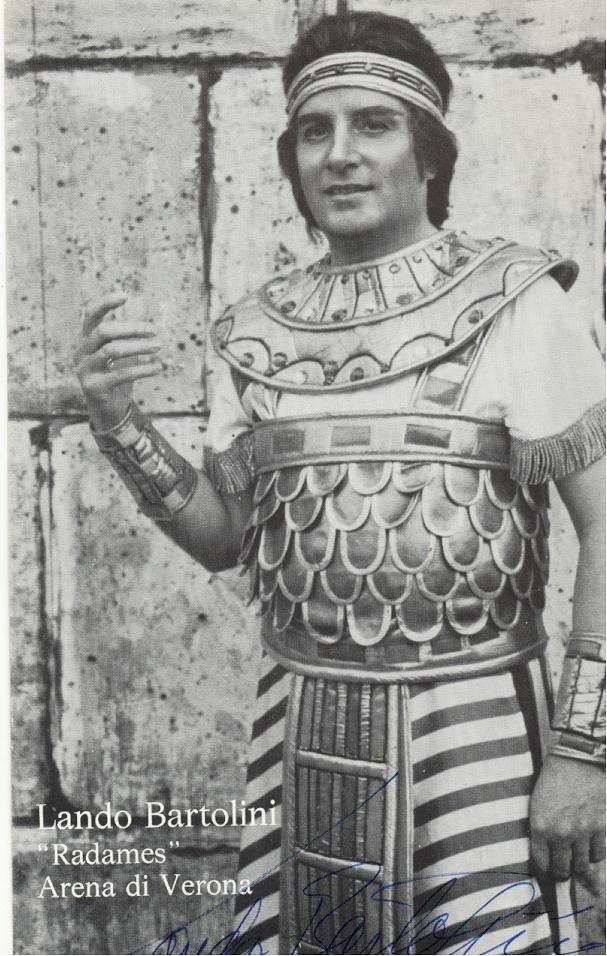Originally, he worked in his family's textile business. In 1966, he moved to
Philadelphia. After the lethal car accident of his brother Lino (1967), who had been a well-known pop singer under the
name Rocco Montana, Lando Bartolini started studying voice in Philadelphia, primarily at the Academy of Vocal Arts with
Nicola Moscona. Again in Philadelphia, he made his debut as Luigi in Il tabarro (17 October 1968).
His career really gained steam when he was successful in Iris at the Teatre Liceu in Barcelona in 1973. He became a
member of the Sankt Gallen theater, then of the New York City Opera (1976–79). His Italian debut took place at La
Scala (30 December 1982, Ernani). In 1983, he was at the Colón in Buenos Aires (Il tabarro), in Santiago de Chile
and at the Arena di Verona (Radamès) for the first time, in 1984 in Hamburg, at the Deutsche Oper Berlin and in Chicago,
in 1985 at the Staatsoper Vienna and the Staatsoper Munich, in 1986 at the San Carlo in Naples (Andrea Chénier) and
in Tokyo (Manon Lescaut). In 1987, he made his debuts at the São Carlos in Lisbon (Calaf) and both the Paris
Opéra (Don Carlo) and the Opéra-Comique (Luigi), and in
December 1988, at the Metropolitan Opera (Radamès), where he returned in 1995 as Calaf. In 1989, he made his debut at
Covent Garden, in 1990 in Catania, Parma and Torino, in 1991 in Florence, in 1992 in San Francisco, in 1993 in Washington
and Rome, and in 1994 in Sydney. He sang until the mid-2000s.
I heard Bartolini several times, but was not crazy about him. His was a true dramatic voice, but it was all sheer power,
no ease, no brilliance, no color.
Reference 1; reference 2: Kutsch
& Riemens (attention, they're giving 1947 as his year of birth, which must be a typo)
